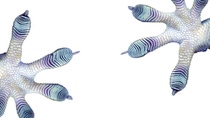Chi siamo
Viewpoint BASF
Nanotechnology is not a magic formula, it is simply a tool that offers us enormous opportunities. We use it to develop materials that have structures, particles, fibers or platelets whose size is measured in nanometers.
At the same time, nanotechnology is a powerful driver of innovation in research and development because it helps us work on finding solutions in areas such as climate protection, mobility, medicine and energy. We need it to answer the questions that will be even more relevant in the future: How can we provide clean water to a growing population? How will we meet the constantly increasing demand for energy? How can we achieve the best environmentally friendly design for rising transportation volumes and individual mobility? It will take more than gradual product improvements or yesterday’s approaches to find answers to these questions. We need new technologies that open up new perspectives.
One example: These days, we use about 20% of electrical energy worldwide to power various light sources. By using organic light-emitting diodes (OLEDs), this energy consumption could be reduced by more than 30% in the future. These OLEDs comprise a thin layer made up of several organic semiconductors which is about 100 nanometers thick, embedded between a transparent anode and a cathode. When an electric current is applied, the nanofilm glows. Our research goal is to develop material for lighting that consumes 50% less energy than today’s energy-saving light bulbs.
Nanotechnology also has great advantages when it comes to water treatment. Plastic membranes made of Ultrason® have small pores, just 20 nanometers across, which filter out germs, bacteria and even viruses from water. This ultrafiltration technology is used to purify drinking water and process water as well as to manufacture products from surface water, groundwater and spring water.
Acceptance will be absolutely key if we want to be able to use nanotechnology in the future as well. In order to achieve acceptance, we have to be open and provide understandable information, engage in discussion, address concerns and find scientifically sound solutions on which there is consensus. In this regard, BASF relies on dialog. We are the first – and so far only – company in Germany to have started a regularly occurring forum. At the Nano Dialog Forum, established in 2008, we meet with representatives from environmental and consumer organizations, unions, academic institutes and churches in order to discuss current political and social developments and issues. This dialog has been a very good experience for us so far. It helps us to better understand concerns and reservations about nanotechnology, which ultimately allows us to respond better to them.

Germany is at the forefront of nanotechnology worldwide and is the leader in Europe. To ensure this remains the case, we need a political and social environment that welcomes innovation. Industry will have to continue to do its part, but politicians must also play a role. Our political leaders now have to set the course and regulate the use of nanomaterials in a way that allows us to take advantage of the enormous opportunities offered by this technology. After all, a technology is intrinsically neutral, neither good nor bad. The important thing is that the application of this technology and the resulting products be managed responsibly.
We take on this responsibility. This is true for products that contain nanomaterials, just as it is for all other BASF products. That is why we have already been conducting extensive safety research on nanotechnology for many years and we are participating in external studies, as well. One such example is a project in which Germany’s Federal Environment Ministry, the Federal Institute for Occupational Safety and Health and BASF are jointly researching the long-term effects of nanoparticles. Thanks to this safety research, we are able to recognize potential risks and develop safe products and applications, thus preventing risks from turning into hazards.
As a large industrial company, we have considerable responsibilities: for the safety of our products, to our employees and to society. I also see it as our responsibility to take advantage of the opportunities that arise for society from new technologies. Only if this is possible will we be able to maintain our future success.


